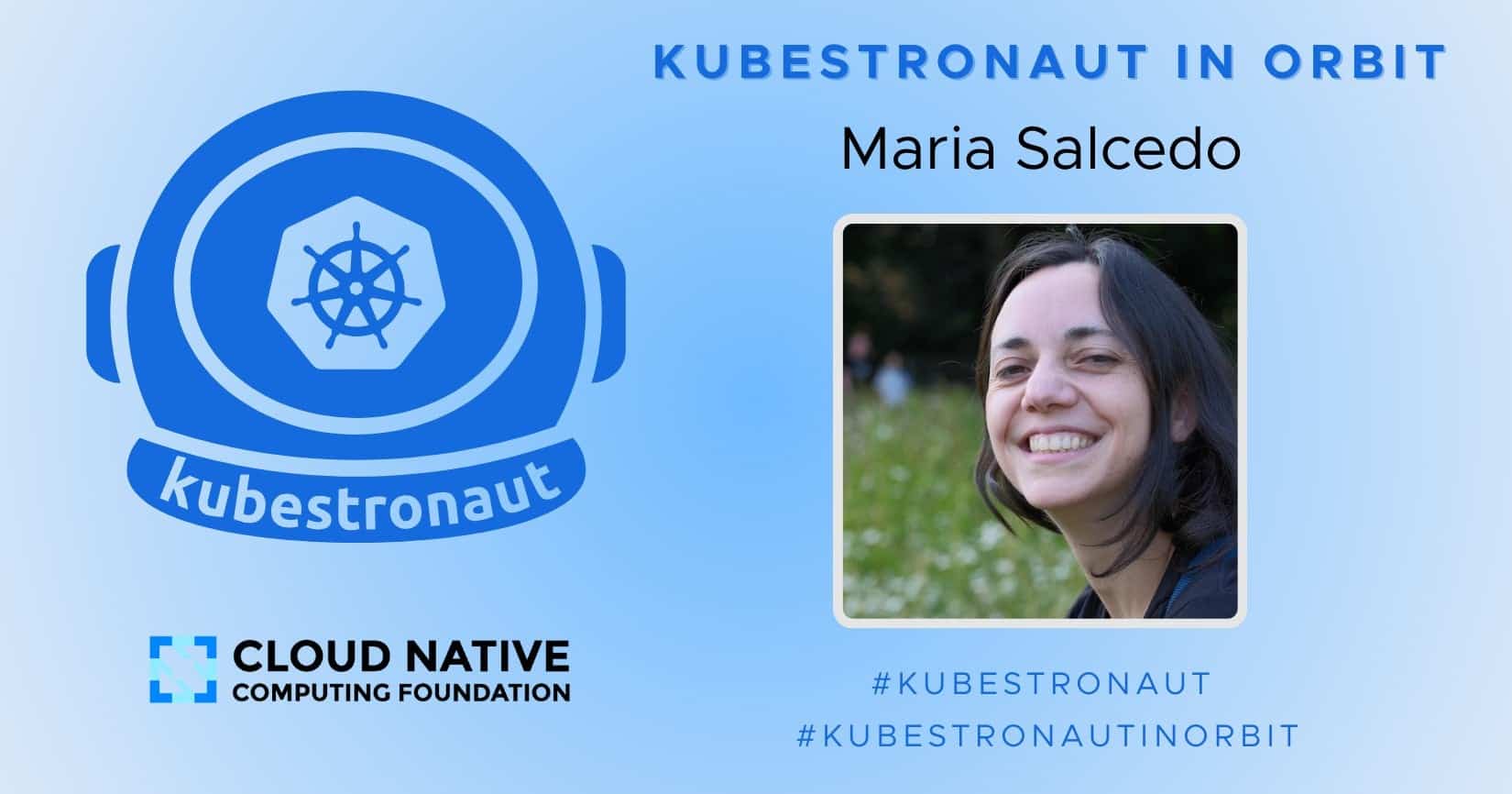
Get to know Maria
This week’s Kubestronaut in Orbit, Maria Salcedo, is a full stack DevOps backend engineer in Germany with experience in cloud native Kubernetes deployments. Maria is passionate about GitOps, cloud native development of CI/CD pipelines, IaC automation, and open source software.
If you’d like to be a Kubestronaut like Maria, get more details on the CNCF Kubestronaut page.
When did you get started with Kubernetes and/or cloud-native? What was your first project?
I started first using containers in 2017 as a backend engineer, deploying through a Jenkins server. Back then, I wasn’t part of the infrastructure team, so I didn’t have access to the K8s server. However my curiosity led me to create a tiny playground to see what an end-to-end solution would look like. Gradually, as I joined new projects, I went deeper into K8s and infrastructure as code. I approached this cautiously –as K8s evolved side-by-side with the CNCF ecosystem, I saw the potential to eventually safely onboard it in highly productive environments.
What are the primary CNCF projects you work on or use today? What projects have you enjoyed the most in your career?
From the CNCF Landscape, the primary ones that I’ve enjoyed the most are (in no particular order): FluxCD, Linkerd, Istio, Prometheus, Grafana, Jaeger, OpenTelemetry, Quarkus, Gradle, PostgreSQL, Kyverno, Ansible, Terraform, Podman, and of course, Kubernetes.
How have the certs or CNCF helped you in your career?
Highly automated environments sometimes lead us to miss some feature details that might be important to consider. More so on security, it is extremely important to be aware of what’s currently being offered, what gets deprecated, and what are indeed the best practices to follow. For that, continuous learning must be a top priority in our careers as software developers, and one tool to “push” you to get better are certificates. For that, I find the certs very useful.
It might sound obvious, but without CNCF we would have no CI/CD pipelines, GitOps, IaC, Monitoring, Storage Management, or Service Mesh solutions. Kubernetes without them is like farming with a fork instead of a tractor. I cannot imagine deploying new features and keeping track of multiple handmade productive clusters without the help provided by CNCF supported projects.
What are some other books/sites/courses you recommend for people who want to work with k8s?
Many YouTube channels have very good videos explaining the very basics. I 100% recommend watching YouTube videos to validate your knowledge.
Once you assess your skill level, you can see how far you wanna go. For instance, get your own little playground started. Most, if not all, cloud providers offer free credits, which can be used for learning purposes.
Some other knowledge sources can be found at The Linux Foundation online courses. I recommend Kubernetes for Developers (LFD259) in particular. You will get your money’s worth.
KodeKloud also offers some courses. Those courses are focused on the K8s certificates. I haven’t done them myself, however the community speaks well about their impact, and how clear their explanations are.
Aside from K8s, there is so much more you can learn, such as deployments, pipeline automation, monitoring, etc.
GitOps, Infra as Code, and automation are as important as the very basics of K8s, for building a proper production-ready setup. For that, I recommend checking the CNCF Landscape page to find tools for it. At a project’s repository, tutorials and examples are usually offered to learn how to implement it in a more interactive way.
What do you do in your free time?
I enjoy nature while hiking. It allows my brain to relax and reflect on what happened during the week.
What would you tell someone who is just starting their K8s certification journey? Any tips or tricks?
For beginners, it pretty much depends where you are starting, so assessing your knowledge plays a big role.
Ask yourself questions such as: How much experience do you have using Docker and containers overall? Have you ever logged into a Kubernetes cluster before? If so, was it self managed or installed “from scratch”? Are you dealing with GitOps and Infrastructure as Code?
Many people underestimate their beginner knowledge, because you probably know many things about Kubernetes just by using some of their components on a day to day basis.
Today the Cloud native ecosystem is way more than Kubernetes. Do you plan to get other cloud native certifications from the CNCF ?
Of course! I am interested in both the Prometheus (PCA) and Cilium (CCA) certifications, as well as the Linux Foundation’s Sysadmin (LFCS) and GitOps (CGOA) certs.